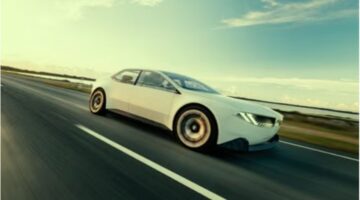
The Ongoing Challenge of Electric Vehicle Costs – Ola Kaellenius, the CEO of Mercedes-Benz, recently addressed the persistent challenge of higher variable costs associated with electric vehicles (EVs) when compared to traditional combustion engine models. Speaking at the IAA car show in Munich, Kaellenius explained that this cost disparity is expected to continue into the foreseeable future. These remarks came as Mercedes-Benz unveiled more details about its upcoming electric vehicle, the CLA compact electric sedan, which is slated for launch next year and aims to offer 30% to 35% more driving range.
Higher Variable Costs for EVs
Kaellenius emphasized that the variable costs for manufacturing electric cars remain elevated due to various factors, including the expense of raw materials for batteries, the development of sophisticated software, and the costs of electricity needed for production. These elevated variable costs pose a challenge as automakers strive to maintain competitiveness in the rapidly evolving EV market. It is particularly challenging because these increased costs cannot simply be transferred to customers on a like-for-like basis.
Optimizing Fixed Costs and Resource Allocation
To overcome the hurdle of higher variable costs in EV production, Kaellenius mentioned that Mercedes-Benz is actively working on optimizing its fixed costs and resource allocation. The automaker is committed to achieving the same level of profitability with electric vehicles as it currently does with combustion engine models. This optimization effort reflects Mercedes-Benz’s dedication to staying competitive and offering EVs that are both economically viable and appealing to consumers.
The New CLA: Improving Efficiency and Reducing Costs
The upcoming CLA compact electric sedan from Mercedes-Benz is designed to address these challenges head-on. The vehicle aims to achieve a power consumption rate of 12 kilowatt hours per 100 kilometers and offer an impressive driving range of 750 kilometers. This represents a significant improvement compared to the 17 to 18 kWh per 100 km power consumption of the current EQA 350 compact SUV model offered by Mercedes.
Markus Schaefer, Chief Technology Officer at Mercedes-Benz, revealed that the company is actively working towards a goal of reducing costs by as much as 50% compared to the previous generation. Achieving such a substantial cost reduction will be instrumental in making electric vehicles more affordable and accessible to a wider range of consumers.
Key Battery Suppliers
Batteries play a critical role in the cost structure of electric vehicles. For the CLA, Mercedes-Benz has partnered with key battery suppliers, including CATL and ACC. Mercedes owns a one-third stake in ACC. This strategic collaboration ensures a reliable and efficient supply of batteries for the upcoming electric sedan.
Reducing Complexity in Model Development
Schaefer highlighted that the CLA’s introduction serves another essential purpose: reducing complexity in model development. The automotive industry has witnessed a significant increase in the diversity of vehicle offerings in recent years. By streamlining and simplifying model development, Mercedes-Benz aims to enhance efficiency in production and maintain cost-effectiveness.
Mercedes-Benz Hybrid and All-Electric Future
Mercedes-Benz’s commitment to electric mobility is evident in its product strategy. The CLA will be offered in both hybrid and all-electric versions, underlining the company’s commitment to providing a range of electrified options for consumers. Notably, Mercedes does not plan to include diesel versions in the CLA lineup, aligning with the industry trend towards cleaner and more sustainable transportation solutions.
As the automotive industry continues its transition towards electric mobility, Mercedes-Benz’s efforts to address the cost challenges associated with electric vehicle production reflect the broader industry’s determination to make electric vehicles more accessible and appealing to consumers. The upcoming CLA compact electric sedan stands as a testament to these efforts, aiming to combine improved efficiency, reduced costs, and an extended driving range to offer a compelling choice in the electric vehicle market.








